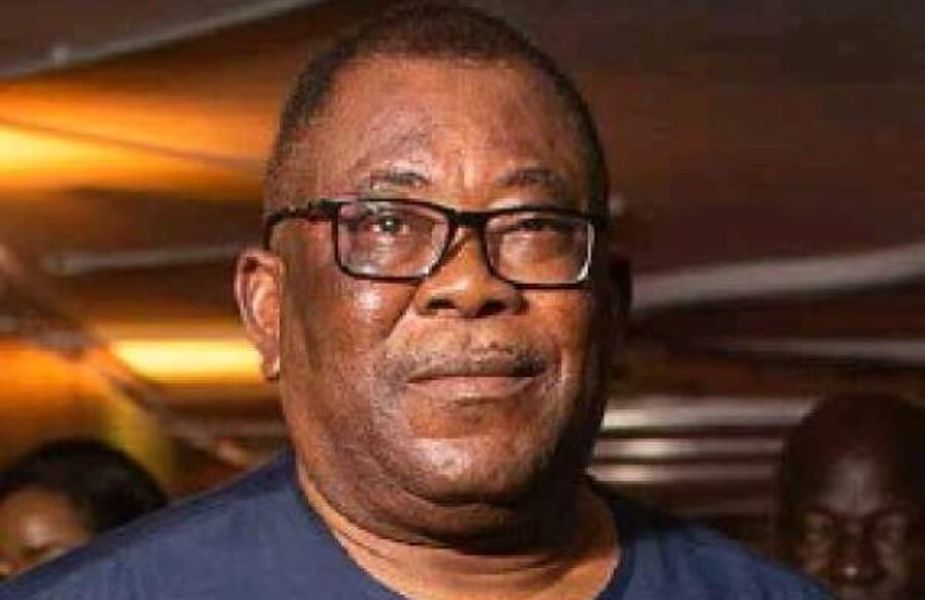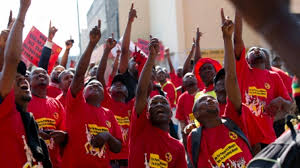Crime
Ex-NNPC GM Says Nigeria Could Have Saved $20bn by Deploying Technology to Tackle Oil Theft

By Derrick Bangura
A former Group General Manager in charge of Research and Development division at the Nigerian National Petroleum Company Ltd., (NNPC), Mr Benjamin Obaigbena, on Wednesday called on the federal government to deploy technology in solving the perennial theft of the nation’s crude oil.
Making his views known in a treatise, the ex-NNPC top shot estimated that Nigeria would have saved as much as $20 billion if it had deployed technology when the problem started years ago
He expressed surprise that Nigeria has just woken up from what he described as its heavy inertia to know that the country is losing substantial volume of crude oil to oil theft and bunkering, insisting that the activities of the criminals are as old as the oil industry.
Obaigbena noted that Nigeria cannot claim ignorance of the astronomical volume of oil theft for the past 50 years, maintaining that it deliberately “let loose the baby tiger into the wild” which has now matured to a monstrous size and sophistication to evade being caught or detected.
The retired NNPC employee disclosed that if the federal government had heeded and implemented a presentation made years ago for the use of technology to solve the problem, the challenge would have been reduced to the barest minimum today.
He insinuated that because government officials are involved in the crime, the criminals are never caught or brought to justice for a long time since they have powerful links to high profile politicians in government protecting the common interests of parties involved.
He explained that in the year 2000, the NNPC made a very innovative and successful strategy to combat corruption at the depots nationwide, reduce pipeline vandalism and smuggling of petroleum products to the neighbouring countries.
According to him, earlier, a think tank of NNPC then, the Consultancy Services Unit (CSU) based in Lagos proposed the use of technology to monitor the distribution of crude and product lines using the principles of Telemetry/ SCADA where NNPC could monitor real time distribution activities of the pipelines along the country’s arteries of pipeline network.
With the deployment of this technology, he stressed that vandalism or pipeline break along the distribution lines would have been instantly detected with tell-tale blinking lights or audible alarm displaying the coordinates of the location on the screen.
In addition, he noted that the signal is immediately dispatched to the nearest military base for immediate dispatch of anti-terror personnel to swoop the area and contain the menace.
“This idea was muted at the presentation venue and did not get to top management of NNPC at that time because of the associated high cost to deploy such technology.
“ That costly decision to mute the idea did not consider the long term cost- benefit implications. If that technology was deployed at that material time, the country would have saved more than $20 billion or more to date. Apart from the long term cost saving, the technological experience in managing the pipeline surveillance and security over the years would have been extended to our railway and road networks for same purpose.
“This 1995 technology has advanced to modern and faster technology with many adds ons (e.g. use of HD video cameras to capture footage needed in identifying and persecuting the criminal bunch in court, SMS, long distance drones, cloud storage, satellites, etc.).
“It is still not too late if we prioritise the need to deploy this technology. The money to acquire this technology can be generated if we can significantly reduce the huge wastages from the three tiers of government which are too numerous to mention here. The government can reengineer its processes to save cost and improve efficiency in delivery of their goals,” he advised.
While calling for a close working relationship with the Research and Development division in the NNPC, Obaigbena stated that the UK Government had offered technical assistance to address the problem of illegally obtained crude oils in the Niger Delta in collaboration with the University of Plymouth.
He explained that when the study was completed, further works were necessary to identify Nigerian crude from a mixture (co-mingling) with other foreign crudes, stressing that the challenge was the immediate acquisition of more sophisticated analytical equipment to complete the investigation.
“NNPC R&D division made a presentation on this study (as promising tool to stop stealing of Nigerian crudes for easy detection anywhere in the world) to the office of Hon. Minister of Petroleum in 2013.
“A promise was made by the office to release $350,000 for immediate purchase of High Resolution Time-of Flight (TOF) Mass Spectrometers (GC-GC-TOF-MS) and Gas Chromatograhy Combustion Isotope Ratio Mass Spectrometry (GC-C-IRMS).
“The purchase of the equipment did not see the light of the day and that was the constraint to conclude the high end research to establish a base to identify Nigerian stolen crude anywhere on this planet.
“It is good to let Nigerians know that the NNPC R&D division was at the time (and may be till now) the most equipped laboratory in African continent with developed capabilities to carry out many complex oil and gas studies that were being done in overseas saving several millions of dollars,” he declared.
According to him, if the government means business to stop oil theft, it should invite NNPC R&D division, Nigeria Upstream Petroleum Regulatory Commission (NUPRC), multinational and national oil companies to meet and come up with solutions to put a final stop to the old problem that has wrecked the nation.
He advised that the local vigilante group can also be a useful catalyst in the drive for intelligence surveillance and information gathering, noting that it is long overdue to overhaul the security of Nigeria’s national asset.
“It is now time for the federal government to wake up, make an early morning call to challenge and push the intellectual community of our great nation to start solving national problems through aggressive research and innovation.
“No nation on this planet thrives in this highly competitive age without a solid foundation in pure and applied research,” he maintained.
Crime
Police Foil Cult Initiation in Anambra, Arrest Six Suspects

The Anambra State Police Command has foiled a cult initiation ceremony in Nawfia, Njikoka Local Government Area of the state.
Spokesperson for the Command, SP Tochukwu Ikenga, disclosed this in a statement issued on Tuesday in Awka.
According to Ikenga, the operation was carried out by police operatives around 9:30am on June 15, leading to the arrest of six suspects at the scene.
Recovered during the raid were one Jojef pump action gun, two cartridges, and a golden-coloured Lexus SUV with registration number ATN 202 AE. Other items found include two cutlasses, two scissors, a cap bearing the inscription of the Supreme Vikings Confraternity, charms, and substances suspected to be hard drugs.
“They are currently undergoing police interrogation to get more insight into their modus operandi, after which the case will be charged to court on the conclusion of the investigations,” Ikenga stated.
The police spokesperson reassured residents of the command’s unwavering commitment to fighting cultism and other related crimes across the state.
Crime
Court remands 2 over alleged attempted murder

An Ikeja Magistrates’ Court, Lagos, on Wednesday, remanded two persons, Olaitan Fasasi and Kehinde Tobiloba in a correctional facility over alleged attempted murder.
Fasasi, 40, and Tobiloba, 26, whose addresses were not provided, are being charged with conspiracy, attempted murder and membership of a secret society.
The Magistrate, Mr L.A Owolabi, did not take the plea of the defendants for want of jurisdiction.
Owolabi directed the police to forward the case file to the Director of Public Prosecution for legal advice.
He thereafter adjourned the case until May 31 for mention.
The Prosecutor, Josephine Ikhayere, told the court that the defendants committed the offences at about 5.02p.m on Feb. 15, at Mushin, Lagos.
She said that Fasasi, Tobiloba and others now at large, attempted to commit murder by shooting at a resident, Alfred Ademola.
“They armed themselves with a locally made gun. They belong to Eiye Confraternity, a group proscribed by law,”, she said.
Ikhayere said that the offences contravened Sections 230(1) and 411 of the Criminal Law of Lagos State, 2012.
He said that the actions of the defendants also contravened Section 2(3)(a)(b)(c)(d) of the unlawful societies and Cultism Law of Lagos State Law.
Crime
Man jailed 3 months for stealing mobile phone

An Area Court in Jos, on Tuesday, sentenced one Jeptha John, to three months imprisonment for stealing a Redmi mobile phone valued at N165, 000.
The judge, Shawomi Bokkos, sentenced the John after he pleaded guilty to the offence.
The judge, however, gave the convict an option to pay N20, 000 fine and N50, 000 restitution to the complainant.
Bokkos said that if the convict defaulted in paying the restitution, three months should be added to his sentence to make it six months imprisonment.
Earlier, the police prosecutor, Insp Monday Dabit, told the court that the case was reported at the B Division Police Station, Jos, on Dec. 1, 2024, by Ms Nerat Danjuma.
He said that the complainant alleged that the defendant trespassed into her house and stole her mobile phone valued at N165, 000.
The prosecutor further told the court that the offence contravened the Plateau State Penal Code, Law of Northern Nigeria.
-

 Headlines4 years ago
Headlines4 years agoFacebook, Instagram Temporarily Allow Posts on Ukraine War Calling for Violence Against Invading Russians or Putin’s Death
-

 Headlines4 years ago
Headlines4 years agoNigeria, Other West African Countries Facing Worst Food Crisis in 10 Years, Aid Groups Say
-

 Foreign4 years ago
Foreign4 years agoNew York Consulate installs machines for 10-year passport
-

 News1 year ago
News1 year agoZero Trust Architecture in a Remote World: Securing the New Normal
-

 Entertainment3 years ago
Entertainment3 years agoPhyna emerges winner of Big Brother Naija Season 7
-

 Headlines2 years ago
Headlines2 years agoNigeria Customs modernisation project to check extortion of traders
-

 Entertainment2 years ago
Entertainment2 years agoMovie download platform, Netnaija, announces closure
-

 Economy2 years ago
Economy2 years agoWe generated N30.2 bn revenue in three months – Kano NCS Comptroller



















